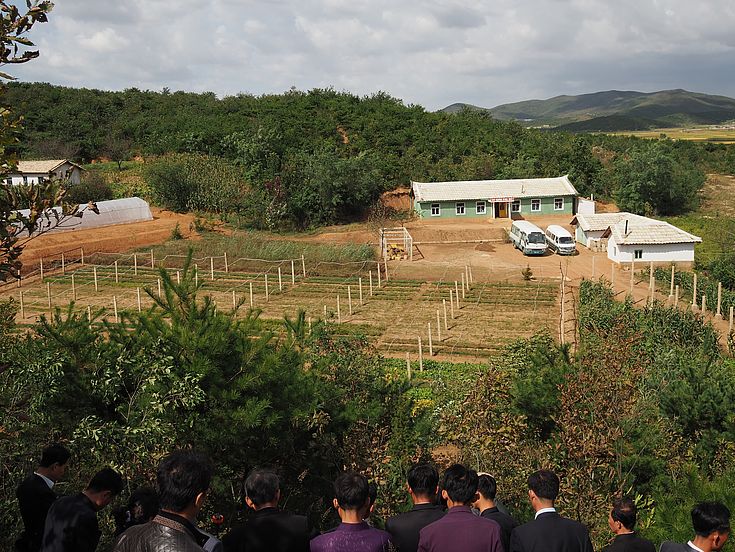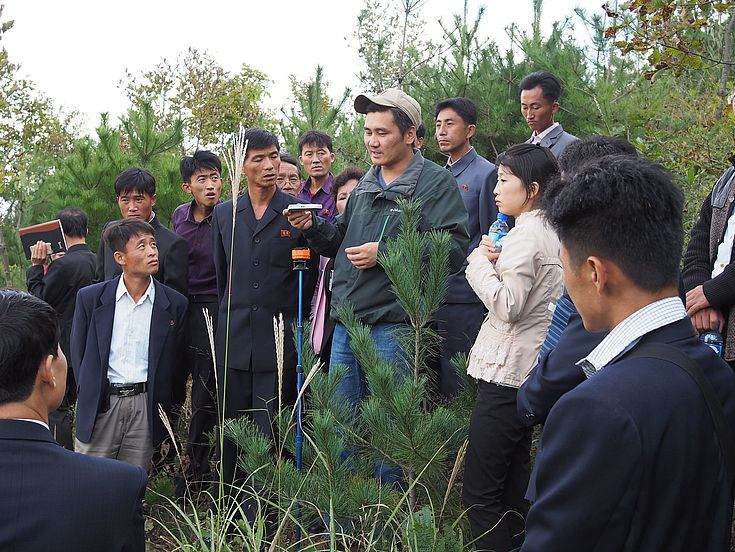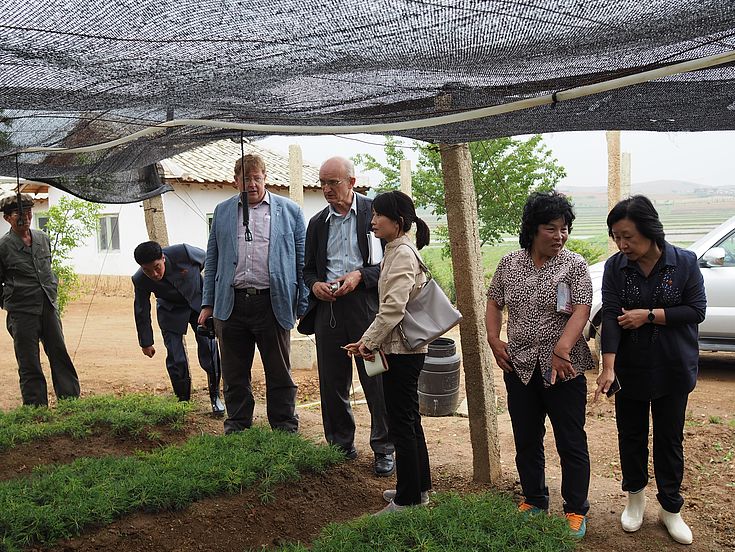Brochure about the Conclusion of the Project Published
EU-funded Project on Sustainable Forestry in the DPRK
After the project, more than 100 Hectare have been reforested at the afforestation site in Sangseo-ri.
HSS
Sustainable Forestry in North Korea
The Democratic People's Republic of Korea (DPRK, or North Korea), once richly covered with forests, is experiencing a decrease in forested areas at a rate higher than the natural regeneration rate. Since September 2014, Hanns Seidel Foundation (HSF) Korea has embarked on a comprehensive project, funded by the EU, to implement healthy forest policies and food security in the DPRK.
By the end of this project, HSF Korea and the project partners established a self-sufficient structure that practices sustainable forest management in the DPRK.
The objectives of the projects were
- to eliminate persistent technical and organizational deficiencies and deficits
- to improve living conditions, especially for the population living in deforested areas
- to increase food security in the DPRK, especially for the population living in deforested areas.
The afforestation site in Sangseo-ri is also used for practical trainings, here during a practical training on national forest inventory methodology by a Mongolian forester.
Activities and outcome of the project
During the entire project, around 260 representatives of the forestry sector took part in International Forest Seminars, roughly 750 experts participated in local trainings in the DPRK, and 24 forest experts travelled to Mongolia and China for trainings.
The partner organizations widened their network significantly by working with a large amount of institutions and organizations in various fields. The North Korean partners also got the chance to connect with experts and international organizations and work towards continued cooperation.
Through the activities, the technical knowledge of the partner organization was increased and contacts with relevant technical and scientific counter-parts in China and Mongolia were established. Some of the contacts lead to a further and independent exchange and an internationalization of the DPR Korean forestry sector.
The project sites provide space for the training of foresters and a showcase for sustainable and successful reforestation efforts, while improving the livelihood of the local population through "cash crops" (crops that can be processed and sold by the local population) and additional benefits from ecosystem services around villages in Sangseo-ri.
During an on-site inspection together with the Food Security Office of the EU, representatives of HSF and local project partners, the afforestation site in Sangseo-ri was visited.
HSS
Brochure about successful implementation published
After a follow-up period, the EU-funded project was concluded on 31 January 2018. To give an overview of activities, goals and achievements, a brochure was designed and published by HSF Korea.
The brochure can be downloaded here.



